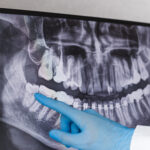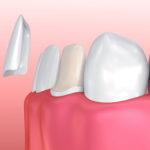HISTORY OF WISDOM TEETH
Most people have horror stories about their experience with their wisdom teeth. As a result, they have a lot of questions about wisdom teeth. Why do we have them if we’re going to need to remove them later in life? Why do they get impacted? What’s the purpose of having them? Wisdom teeth are considered functionless like an appendix. They are no longer necessary or used.
Why are they called wisdom teeth?
If you have ever wondered why they’re called wisdom teeth, I’ll give you a hint, it has nothing to do with wisdom. They were dubbed wisdom teeth because they tend to develop later on in life. Children develop baby teeth, then adult teeth, but wisdom teeth often don’t emerge or appear until you turn 24. Due to their late development, they are called wisdom teeth because you are much wiser than you were when you originally developed your other teeth.
The evolution of wisdom teeth
Experts believe that wisdom teeth were essential for our ancestors because they frequently had to consume difficult or hard to chew foods like uncooked meat, roots, leaves, and so much more. Additionally, they likely didn’t have any kind of utensils to cut down their food and had to rely on their jaws for that. Wisdom teeth were necessary during those times to help aid in food consumption. As evolution has progressed and culinary arts matured, there wasn’t much need for wisdom teeth. Humans experienced a great jaw reduction, likely due to the higher availability of cooked, chopped, and softer foods.
Due to our evolution, wisdom teeth became useless to our survival. The vast majority of people have at least 1-4 wisdom teeth, though there are some people who have none. Though there is no guarantee that our wisdom teeth will erupt, our jaws are much smaller than they were historically so wisdom teeth can become impacted and infected within the gums or push on our other teeth and create misalignment. In order to avoid those outcomes, many people choose to have their wisdom teeth removed.
When to take out wisdom teeth?
Most dentists will recommend taking out wisdom teeth as early as they are detected, which is typically around 16 or 17. Depending on the specifics of your situation, earlier or later removal may be necessary. Removal is sought as soon as they are spotted in order to greatly decrease the risk of them causing harm to patients.
There may be some instances that may alert you to schedule your removal early including red or swollen gums, bleeding gums, jaw pain, bad breath, a bad taste in the mouth, and pain while opening your mouth. Discuss these symptoms with your doctor before moving on to your removal. For more information on wisdom teeth contact us at Centreville Dentistry.

 Previous Post
Previous Post Next Post
Next Post